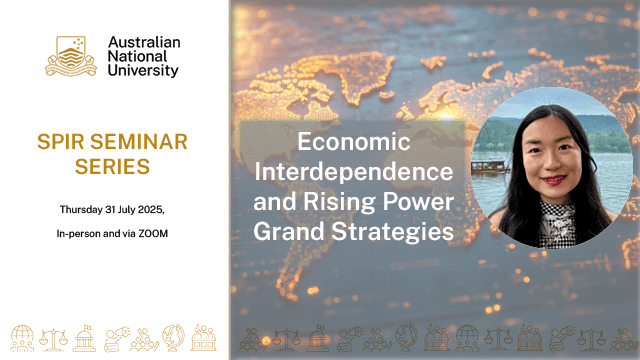
Compared to historical rising powers such as Bismarckian Germany, China does not use force as often as historical rising powers, prefers coercion instead of force, tends to resort to nonmilitarised coercive tools, and prefers strategic partnerships as opposed to formal alliances.
China exhibits a curious pattern of using nonmilitarised means to achieve its grand strategic ends. What explains China’s divergent path compared to Germany under Bismarck? Specifically, how does global economic interdependence impact rising powers’ grand strategies? This paper intends to apply theories in international political economy to examine rising powers’ grand strategic choices, comparing China’s grand strategy against Bismarckian Germany’s grand strategy.
It leverages rich empirical evidence, including primary Chinese documents and interviews with Chinese and foreign officials, as well as historiographies, economic data, and archival documents on Germany. It argues that different levels of and the changing nature of global economic interdependence explain the divergent use of grand strategic means between China and historical rising powers. Economic interdependence in the form of global production and supply chains both constrains and enables China’s use of grand strategic means.
Ketian Vivian Zhang is an Associate Professor of International Security in the Schar School of Policy and Government at George Mason University, where she also serves as the faculty director for the International Relations Policy Task Force. Her work focuses on rising powers, coercion, economic statecraft, and grand strategy, with a regional emphasis on China and East Asia.
Her research agenda explores how globalised production and supply chains affect state foreign policy, particularly in relation to coercion and strategic behaviour. Her first book, published by Cambridge University Press, examines when, why, and how China employs coercion in response to national security challenges, including territorial disputes in the South and East China Seas, foreign arms sales to Taiwan, and the reception of the Dalai Lama by foreign leaders. Her work has appeared in International Security, Journal of Strategic Studies, Journal of Contemporary China, Texas National Security Review, Asia Policy, and the Journal of Indo-Pacific Affairs, among others.
Her second book project investigates the relationship between economic interdependence and the grand strategies of rising powers. Ketian received her Ph.D. in Political Science from the Massachusetts Institute of Technology in 2018 and is an affiliate of the Security Studies Program. She has held fellowships at the Shorenstein Asia-Pacific Research Center (Stanford), the Belfer Center for Science and International Affairs (Harvard Kennedy School), and the Institute for Security and Conflict Studies (George Washington University).
Location
Speakers
- Associate Professor Ketian Zhang (George Mason University)
Contact
- Richard Frank